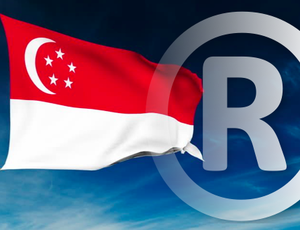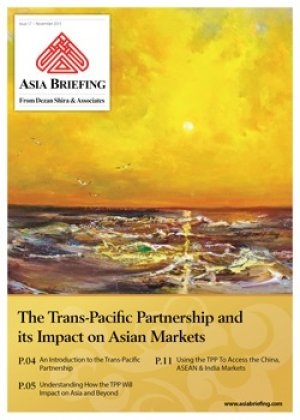A Guide to Trademarks in the Republic of Singapore
 By: South-East Asia IPR SME Helpdesk
By: South-East Asia IPR SME Helpdesk
Singapore is ASEAN’s most developed economy and offers a wide range of investment opportunities for companies seeking to tap into the city state’s rich pool of talent and extensive global trade networks. These conditions have not been lost on foreign investors whose capital flows have propelled Singapore to become Asia’s top hub for finance and, more recently, startups.
That said, the innovative and sensitive nature of corporate branding in Singapore mandates a strong protection for intellectual property on the part of host states, and a firm understanding of trademark laws on the part of investors. This is of particular importance for small and medium sized enterprises (SMEs), which may not have the resources to engage in drawn out legal battles.
Fortunately, the Singaporean Intellectual Property (IP) legal framework is very comprehensive and is generally considered to be one of the most thorough in Asia. Singapore is a member of the following international conventions regulating IP matters:
- The Madrid Agreement concerning the International Registration of Marks
- The Patent Cooperation treaty
- The WIPO Copyright Treaty
- The NICE Agreement concerning the International Classification of Goods and services
- The Berne Convention for the Protection of Literary and Artistic Works
SMEs are reminded that IP rights are territorial, and accession to these treaties governs only the scope and availability of protection in Singapore and does not grant blanket protection for those who hold registrations in other member nations. Furthermore, it should be noted that Singapore operates a ‘first-to-file’ system, meaning that the first to file an application for an IP right in the Singaporean jurisdiction will own that right once the application is granted.
Trade marks in Singapore
A trade mark is a sign such as a word, device, brand, shape, color or any combination of these elements, which is capable of being graphically represented and being used by a person in the course of trade to distinguish his goods or services from another person’s. In Singapore three-dimensional signs (shapes) and sounds can also be registered as trademarks, however trademarks based on taste and smell are not recognized.
The law also provides a number of circumstances under which a mark is not eligible for protection, such as when it is identical with or confusingly similar to national flags or emblems, or when it would cause misunderstanding or confusion as to the origin, properties, quality, or other characteristics of the goods or services. It also cannot be identical or confusingly similar to another person’s mark already registered or used for identical or similar goods or services.
Protection for Trade Marks in Singapore
Protection for registered trademarks enjoy statutory protection in Singapore under the Singapore Trade Marks Act through which the registered proprietor has certain remedies available to him in the event that his trade mark is infringed.
A trade mark does not generally have to be in use before it is applied for or registered, although all applications for registration should be on the basis that there is existing use or an intention to use the mark in the course of trade. In the case of weaker or less distinctive marks the trade mark registry office may require the applicant to establish use whilst examining trade mark applications. This being said, it is important to remember, as mentioned above, Singapore operates a ‘first-to-file’ system and early application for trademarks, ideally before release of products and services into the market is recommended.
Where trademarks are granted before actual use, the right holder, or his licensee must put the mark to genuine use in the course of trade within five years from the date of completion of the registration procedure, or risk the registration being revoked for non-use.
Obtaining Trade Mark Registrations in Singapore
Applications for trade mark registrations in Singapore can be made by any individual, firm, or company claiming to be the owner of the mark. Whilst there are no restrictions as to nationality or residency, a Singapore address must be provided for the service, to which all correspondence will be sent.
Applications must be submitted in English to the Intellectual Property Office of Singapore (IPOS), using the official form found online via eTrademarks, or by post/in person to the Registrar of Trade Marks. If you have engaged an agent to submit applications on your behalf, IPOS may require that your agent produce evidence of his authority to do so.
IPOS will assess the application to ensure that all formalities are met before conducting the relevant searches and examination to ensure that the mark applied for is registrable. Once this is completed, the application will be published, and, provided no oppositions are filed against the application within two months of publication, the trade mark will proceed to registration.
At time of writing, the basic filing fee (charged by IPOS) for application in one class is around US$253 (SGD 341). There are also further fees applicable for subsequent steps in the application process which vary dependent on the details of the application.
Once registered, statutory protection for registered marks can last indefinitely, although renewal applications must be filed every ten years.
For further details and information on the application and registration process, along with guidance notes on the filling and filing of forms please refer to the IPOS website.
Registrations by post or in person should be made to this address:
Intellectual Property of Singapore
51 Bras Basah Road #04-01
Manulife Centre
Singapore
189554
Tel: (65) 6339 8616
Enforcement
Singaporean IP law offers three main avenues of enforcement for those facing infringement of trade marks; civil litigation, criminal prosecution, and customs seizures. Unlike most ASEAN countries, there are no administrative actions available in Singapore. However, there is a dedicated section within the police the Intellectual Property Rights Branch of the Criminal Investigation Department, that undertake police raids following complaint by the rights owner. In the event that there is no settlement following a raid, the rights owner can apply for permission from the Attorney General to commence prosecution by the rights owner’s appointed attorney. In cases which are of some public interest or of special significance, the Attorney General may take over the prosecution. In many cases however, private mediation via legal professionals is more effective and should be considered as a viable option. For trade mark issues, mediation is often an effective tool which, given the severity of penalties for infringement in Singapore, will often result in a favorable outcome, as well as representing a considerable saving over civil or criminal actions.
Civil litigation proceedings can be initiated with the courts, which may award remedies including damages (or an account of profits), statutory damages, injunctions, and/or destruction orders for infringing goods.
Where infringers are charged in the criminal courts, penalties include a fine and in cases where the infringement is severe (based on quantity) the court has been known to hand down terms of imprisonment. Criminal actions usually does not result in any compensation for the rights holder, however civil proceedings can be pursued as a parallel claim and criminal conviction will considerably strengthen the case in civil courts.
It should be noted that the Singapore Trade Marks Act contains provisions against groundless threats of legal action. Therefore, any proposed demand letter should be carefully drafted to make clear the legal basis upon which your potential infringement claim is premised. A statement which merely notifies the other party of the existence of a trade mark registration does not constitute a threat of proceedings.
|
The South-East Asia IPR SME Helpdesk, co-funded by the European Commission’s Directorate-General for Enterprise and Industry under the Competitiveness and Innovation Framework Programme, supports European Union (EU) small and medium sized enterprises (SMEs) to both protect and enforce their Intellectual Property (IP) rights in or relating to South-East Asia, through the provision of free information and services. These take the form of jargon-free, first-line, confidential advice on intellectual property and related issues, plus training, materials and online resources.
|
Annual Audit and Compliance in ASEAN
For the first issue of our ASEAN Briefing Magazine, we look at the different audit and compliance regulations of five of the main economies in ASEAN. We firstly focus on the accounting standards, filing processes, and requirements for Indonesia, Malaysia, Thailand and the Philippines. We then provide similar information on Singapore, and offer a closer examination of the city-state’s generous audit exemptions for small-and-medium sized enterprises.
 The Trans-Pacific Partnership and its Impact on Asian Markets
The Trans-Pacific Partnership and its Impact on Asian Markets
The United States backed Trans-Pacific Partnership Agreement (TPP) includes six Asian economies – Australia, Brunei, Japan, Malaysia, Singapore and Vietnam, while Indonesia has expressed a keen willingness to join. However, the agreement’s potential impact will affect many others, not least of all China. In this issue of Asia Briefing magazine, we examine where the TPP agreement stands right now, look at the potential impact of the participating nations, as well as examine how it will affect Asian economies that have not been included.
 An Introduction to Tax Treaties Throughout Asia
An Introduction to Tax Treaties Throughout Asia
In this issue of Asia Briefing Magazine, we take a look at the various types of trade and tax treaties that exist between Asian nations. These include bilateral investment treaties, double tax treaties and free trade agreements – all of which directly affect businesses operating in Asia.













